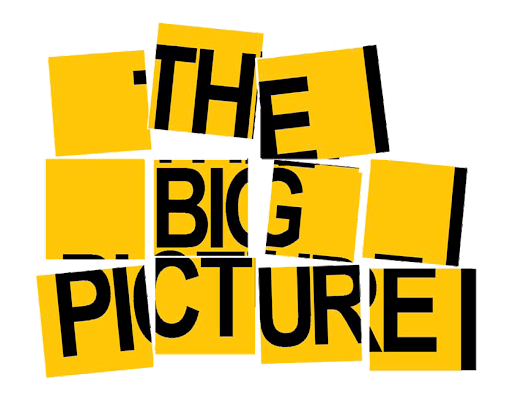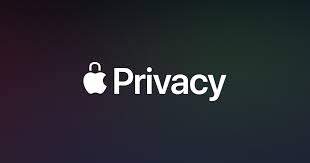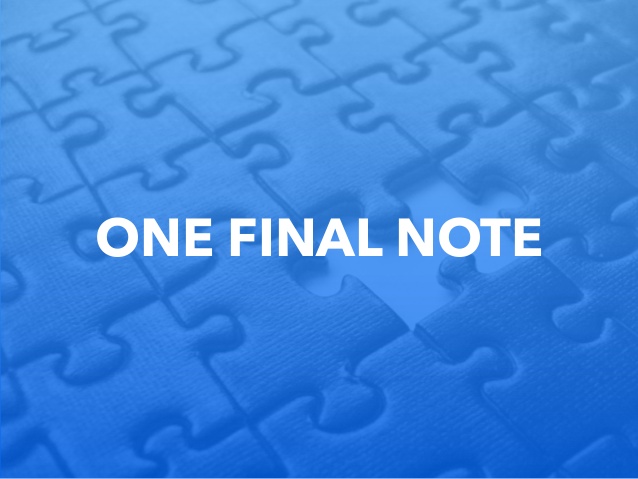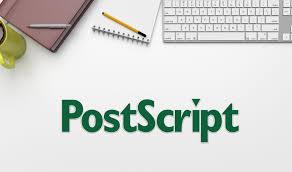17 September 2020 (Palaiochora, Crete) – Our world is ever surging forward, but progress is less linear than convulsive. With technology as with society at large, we gather and gather, then suddenly … BOING! Welcome as these quantum leaps are, they can be taxing as well. So much “Big” is happening, your faithful writer has come to treasure the “Small”. In my readings, I seem to have cunningly entwined surprise with (at times) outrage … and ambivalence. Even living on the sea sometimes requires noise cancellation, not because it shuts the world out but because it helps bring me the calm needed to connect with what that noisy world makes possible – its people, its art, life’s urgency, its beauty, its complexity. A desire to nuzzle the “Now”. And, no, I’m not fooling myself. I know have created my own opiate of illusory isolation.
But you need to carve out some kind of cocoon from the cacophony. Something to strip away the wind and chatter of your regular environment, your own ambient soundscape. So I have my own little ASMR humming along, allowing my pondering, my musing, my “productivity” just scrolling out before me.
And after this week … yikes! Lots to ponder. We’ve had:
• the combination bringing together NVIDIA’s leading AI computing platform with Arm’s vast mobile/computer/server chip ecosystem (huge, and my next post)
• the TikTok/Oracle “deal” and
• the Apple “Time Flies” event.
Lots to contemplate. For this post, I’ll address Apple. But first:
Before I retired, I had the good fortune to work in (what once were) three discreet technology areas:
– digital and mobile media
– cyber security
– legal technology
In years gone by these were discreet areas. No longer. Though most of the practitioners in each seem stuck in their respective silos, rarely venturing out to learn/understand the other two. Those that do make it out only make superficial contact with their “neighbors”.
But as I have noted in many previous posts, the modern human (and especially the modern technologist) moves through all three of those myriad, overlapping spheres. They are forever entangled. It is because we live in a world of exponential companies, fundamentally different in characteristics to industrial age ones. To borrow from hydraulics, it’s the compression ripple writ large. Traditional sector classifications (developed to categorise the industrial economy) make no sense. What is included in the bucket of “information technology sector” are companies serving the modern economy across food, power, transport, health, security, logistics, etc., etc. by harnessing modern capabilities (i.e. “information technology”). The thing that the “IT” sector has in its hands are exponential, rather than extractive, technologies. And while old-economy companies are trying to integrate technology into their business, for new-age companies technology is their business.
So the NVIDIA/Arm deal, the TikTok/Oracle “deal” and the Apple “Time Flies” event are all overlapping, all entangled, as the next few posts will show.
And for data privacy practitioners … see, I am finally getting to data privacy and Apple … the irony is palpable. With everybody being forced to rely 100% on digital (for your in-person ways, doing business, etc.) as the mantra “GO DIGITAL TRANSFORMATION! GO DIGITALIZATION!” is heard across the mountain tops, conversational marketing, live chat, social media interactions, direct email communications, digital marketing (the list is endless) has skyrocketed and along with it data collection and diffusion.
Worse, the future is cyber-totalitarian. Governments didn’t have the capacity to process vast operations better handled by distributed individuals. But over the years, with growing computing power, and the feedback loop of data perfecting data, the game is now inverted.
None of these forms and structures and processes were contemplated in quite these manifestations by the recently passed European data protection laws or even the recently passed California data privacy laws. Those laws might as well have been passed for the analogue era. I will explain more in subsequent posts.
RELATED NOTE: on Monday, Ireland’s High Court temporarily froze a probe by Facebook’s lead European Union regulator that threatened to halt its transatlantic data flows. This relates to the July 2020 decision by the Court of Justice of the European Union commonly referred to as Schrems II. The High Court decision was widely expected given the ease with which a litigant can request an ex-parte hearing and the high percentage of times a litigant wins, plus the errors made by the Irish Data Protection Commissioner. And (of course) EU politics reared its head. As I noted in a post last week, it’s a “bandwidth” issue. The EU Commission was hoping (lobbying?) for Ireland to kick the can down the road a bit since Schrems II and the Privacy Shield are not “top of mind” right now with Brexit, Russia, a China trade deal, collapsing democracies in Hungry and Poland, etc. requiring a lot of time. Yesterday, European Commission President Ursula von der Leyen gave her first “State of the European Union speech” (79 minutes, 8,179 words) and did not mention data protection once. Only “industrial data” and how the EU could make money from it.
Apple stands out when it comes to privacy and security in smartphones. In fact, many people buy iPhones only because they feel it’s more secure than Android. To some extent it is true, but most of the headlines are exaggerated. iPhone is more secure because of sandboxing, which prevents apps from accessing other apps and operating system beyond a certain threshold. However, it’s not hack-proof as some headlines try to brag.
NOTE: IOS 14 has already been pwned.
This hype around the security of an iPhone has created an enormous advantage for Apple, so much so that WWDC never ends without Tim Cook talking about the privacy and security of Apple devices:
You are not our product. Our products are iPhones and iPads. We treasure your data. We want to help you keep it safe.
It’s why you keep hearing “Apple does not care about the digital oil”.
BUT … while other giants such as Google, Facebook, and Amazon are competing to extract every bit of digital oil, Apple is playing the two-faced game to outrun all of them. Apple is embracing user privacy, which awards them with the customer’s trust and money. On the flip side, they make billions from these giants. Google reportedly paid $12 Billion a year to Apple to make Google as a default search engine on the iPhone.
Apple often criticizes Facebook for its malpractices for consumer data privacy. Last year, Apple revoked Facebook’s enterprise developer certificate for distributing a data-collecting enterprise app with its consumers. According to the enterprise developer certificate conditions, it is not allowed. Apple just enforced the licensing agreements, gaining publicity for privacy in the process. This kind of publicity over privacy has made Apple billions over the years. It allowed Apple to bag a 64% margin on its iPhone X, even though it lagged far behind in its spec sheet compared to other flagship smartphones.
And, Apple has made the iPhone and MacBook a closed system, so independent repair shops cannot fix your device, forcing you to pay (unnecessarily) hundreds of dollars for Apple service. Oh, and Apple keeps removing the things we love: the headphone jack, USB ports, home button … and it still maintains its position in the market.
If Apple really cared about privacy, they could have blocked these apps and supported alternatives such as DuckDuckGo and Telegram. Apple can invest money in its mapping service and compete with Google; it can use its iMessage app to compete with What’s App. That would be the real flex. Instead, Apple distributes data hogging apps in its App Store.
So, while corporations such as Google, Facebook, and Snapchat are struggling to cope with privacy concerns, Apple is embracing it … and VPN can be their ace card. Your key to the Apple prison.
It’s no secret, Apple Prison is real and is here to “save” you from other platforms. The seamless ecosystem of Apple hardware is great, but that’s not what you call a true prison, right? You need to control the software too. That’s where the VPN would help.
NOTE: for a very good read about VPNs click here.
Apple can’t stay on top with just the hardware, it knows that real money is in the digital service market. They are already trying hard to compete with Netflix, Prime, and Disney in digital media with its Apple TV+. Apple’s website homepage, which was once reserved to showcase the latest hardware, as of this writing, is now being used to grow the Apple TV+ audience. In 2015, Apple released its iPhone upgrade program: get a new iPhone every year for a monthly fee. You can call it ‘iPhone as a service’ plan. Then there is a suite of Apple subscription-based services such as Apple Music, Apple TV, iCloud, Apple Care, Apple News, and Apple Arcade. This suite is missing a product that can tie all of Apple together and maintain the public privacy concern face of Apple’s … Apple VPN.
After people boycott Facebook and switch to alternatives, no issue is more important than user privacy. Apple can use the leverage to maintain its status. Plus, there is no competition. Google and Facebook can’t do it because of their reputation in the matters of privacy and the fact that they rely on data to function. Amazon and Microsoft are not the best options because they don’t have as much control as Apple unless Amazon includes it in their Prime subscription. That could be a game-changer.
It confuses people when it comes to VPN; they don’t know which ones to trust, how to set it up, is it worth it, and how much bandwidth you are allowed, etc. There is a gap in the market that Apple can easily fill. Apple is known for making things simple, people trust Apple, and billions of devices are out there waiting for the service.
In a world where many think privacy has become a human right, the code is it makes more sense to protect it rather than risk losing it, having it taken away. Unlike Google and Facebook, Apple’s mantra is it does not rely on consumer data for its operations, gaining an unfair advantage. VPN would give Apple the ultimate power to use this advantage to gain more customers, and trust. Oh, and in the end, earn it a ton of money.
* * * * * * * *
Having watched the entire Apple “Time Flies” event I think MacRumors has the best rundown of what’s new of the summaries I have read. To read it, click here.
Like many, I think the instantly most popular thing will be pinning message recipients to the top of the screen for quick access to people or groups you often communicate with. Plus, you can change your default browser and mail app. So say goodbye to your battery if you choose Chrome and Gmail, I suspect 🙂





